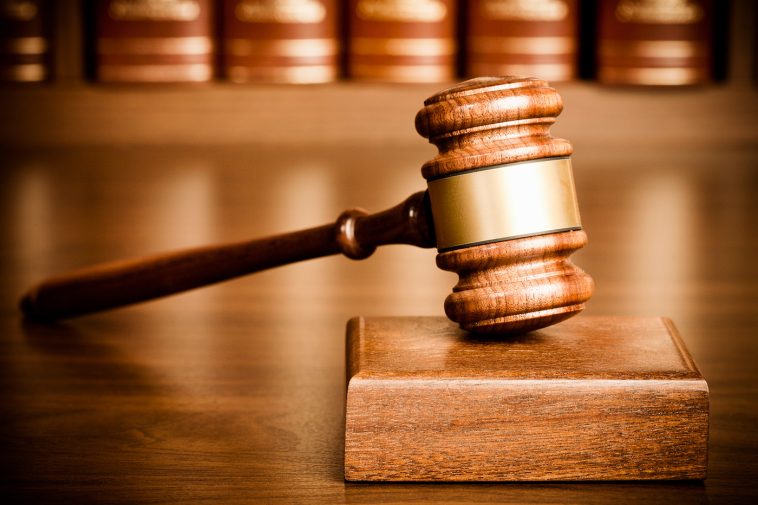The Battle for Rivers State
In the simmering political war between former governor Nyesom Wike and his successor Siminalayi Fubara, Justice Omotosho’s courtroom became a critical battleground. When 27 Rivers State lawmakers defected from the Peoples Democratic Party (PDP) to the All Progressives Congress (APC), a move that should have automatically cost them their seats under Nigeria’s constitution, Governor Fubara sought to enforce this constitutional provision. Instead, Justice Omotosho intervened with a series of rulings that protected the defectors and weakened the governor’s position .
Consider the implications: Omotosho not only nullified the state’s 2024 budget that had been passed by the remaining lawmakers but went further to direct Governor Fubara to re-present the budget to the very assembly members whose legitimacy was in question . This judicial intervention essentially stripped a sitting governor of his constitutional powers while preserving the positions of lawmakers who had openly switched allegiance. The Rivers State High Court under Justice C.N. Wali would later issue contradictory rulings, creating a judicial chaos that perfectly served the political interests of Wike’s faction by prolonging the crisis .
Key Judicial Interventions in Rivers State
Case Omotosho’s Ruling Political Impact Lawmakers’ Defection Protected 27 pro-Wike lawmakers who defected from PDP to APC Enabled continued opposition to Governor Fubara 2024 Budget Passage Nullified budget approved by 4 lawmakers, ordered re-presentation to full assembly Weakened governor’s constitutional authority, strengthened Wike faction Legislative Functions Barred Fubara from obstructing pro-Wike lawmakers’ legislative duties Preserved defecting lawmakers’ power despite constitutional questions
The PDP Convention Blockade
The political theater surrounding the Peoples Democratic Party’s planned national convention reveals perhaps the most controversial aspect of Omotosho’s jurisprudence. In October 2025, just weeks before the party was set to hold its leadership convention, Justice Omotosho delivered a 95-page judgment that halted the entire process . The rationale? The party had allegedly failed to conduct proper state congresses and violated procedural requirements in its convention preparations.
What makes this ruling particularly contentious is how it was celebrated by Nyesom Wike, who had become increasingly alienated from the PDP’s leadership. Wike hailed the decision as a “decisive blow against impunity” within the party, while the PDP itself condemned it as an “assault on Nigeria’s democratic process” . The timing and consequence of this judicial intervention effectively paralyzed the main opposition party’s ability to organize itself, with Wike and his allies using the court ruling as leverage in their internal party struggle.
The judgment contained extraordinarily detailed directives about how a political party should manage its internal affairs, including specific instructions about which party officials had signing authority for correspondence . For critics, this represented judicial overreach into the internal operations of a political organization, essentially using technical violations to determine leadership outcomes within the primary opposition party.
A Pattern of Political Influence
The troubling pattern extends beyond specific rulings to questions of personal connections and potential conflicts of interest. In 2024, the Initiative for Transparent Strategy and Good Leadership revealed that Justice Omotosho had received a prime property gift from then-Governor Wike’s administration . The group presented documents showing Omotosho as recipient of Plot 104 GRA Phase 8 in Port Harcourt, a property originally owned by Hon. Odien Ajumogobia, SAN, whose Certificate of Occupancy had been revoked by Wike in 2016 .
This revelation strikes at the heart of judicial ethics. Rule 10 of the Professional Conduct for Judicial Officers explicitly prohibits judges from accepting gifts, bequests, loans, or favors related to their judicial duties . When a judge who has received such property gifts subsequently issues multiple rulings favoring the political interests of the benefactor, it inevitably erodes public confidence in the judiciary’s impartiality. The group rightly questioned whether “a search report wouldn’t show that the land originally belonged to Ajumogobia” and why a judge would “accept a property that should have been for public use” .
Beyond the Wike connection, Omotosho’s courtroom has been the stage for other politically significant rulings:
· He upheld Wike’s crackdown on scavengers and beggars in Abuja, making statements that beggars choose their profession due to “laziness and indolence”
· He dismissed a N500 million suit seeking protection for these vulnerable groups, ruling that there’s “no fundamental right to beg”
· His rulings have consistently aligned with the interests of political power centers in cases with significant implications for democracy and opposition rights
The Bigger Picture: Democracy Under Threat
When we step back from individual cases, a disturbing pattern emerges of judicial power being weaponized in political conflicts. The consistency with which Justice Omotosho’s rulings align with Wike’s political interests—from preserving the positions of defecting lawmakers to paralyzing the PDP’s leadership transition—creates what legal scholars call the “appearance of impropriety,” which can be as damaging to judicial integrity as actual corruption.
The selective application of technical requirements also raises concerns. While all parties should follow electoral laws, when judges employ technicalities primarily against opposition parties or specific factions within those parties, it undermines the principle of neutral justice. The PDP’s rejection of Omotosho’s convention ruling as “an assault on Nigeria’s democratic process” reflects how such judicial actions can deepen political polarization rather than resolve it.
Most fundamentally, when courts are perceived as aligning with political interests, it erodes the judiciary’s legitimacy as an independent arbiter. As one civil society organization warned, “the judiciary, which should be the last hope for the common man, is now seen as the hope of those who know judges and can offer favors” . This perception represents an existential threat to Nigerian democracy, which depends on functional institutions more than individual leaders.
Conclusion: Reclaiming Justice
Nigeria stands at a crossroads where the integrity of its judicial system is increasingly questioned. The cases discussed represent not just legal technicalities but battles for the soul of Nigerian democracy. When judges become participants in political contests rather than neutral arbiters, the very foundation of democratic governance trembles.
For Nigeria to develop strong democratic institutions, the judiciary must remain above political fray, not a weapon in it. The conversation about Justice Omotosho’s rulings is ultimately about much more than one judge—it’s about whether Nigeria can build institutions strong enough to withstand the pressures of personal ambition and political conflict.
The hope for Nigerian democracy lies not in the courtroom of any single judge, but in the collective demand for accountability from all citizens who refuse to accept the politicization of justice. Only when the public demands better can the judiciary truly become the independent institution democracy requires.






